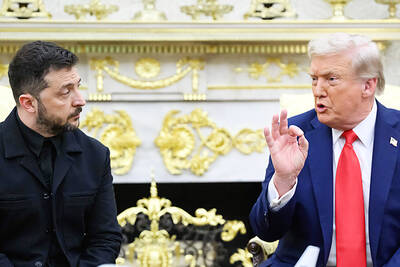To reach its global warming goals, California must cut greenhouse gas emissions by about 4 tonnes per person, which would require cleaner cars, more renewable energy and a cap on major polluters, a state plan released on Wednesday showed.
It’s the first comprehensive effort of any state to reduce greenhouse gases in the absence of federal regulation. The plan to be voted on by the California Air Resources Board in December builds upon an earlier draft on ways to meet the global warming law signed by California Governor Arnold Schwarzenegger two years ago.
“Despite a difficult economy, it is important that we move forward on our environmental goals, which is why I am pleased that in California we have put together a plan for reducing our greenhouse gas emissions that also boosts our economy,” Schwarzenegger said in a statement.
California will implement the plan over the next few years through lengthy regulations that have yet to be written, so many details remain unknown. An analysis released by the board last month suggested California’s economy would grow faster under the proposal than if the state did nothing to cut emissions blamed for global warming.
One of the most contentious proposals is a cap-and-trade program to help power plants, oil and gas refiners and other major polluters lower their carbon emissions. The idea is to allow businesses that cannot cut their emissions because of cost or technical hurdles to buy credits from cleaner businesses.
Many embrace a trading scheme as cost-effective, but some worry businesses could shirk their responsibilities and continue polluting the air. The latest plan suggests firms could get some emission credits for free, but polluters eventually would have to buy into the market.
Local governments will also be asked to build residential developments near public transportation, shops and businesses.
Regulators said decisions would be made later. Air Resources Board Chairwoman Mary Nichols explained that regulators first wanted to think through the implications of such a plan before addressing the specifics.
Some businesses have criticized the board’s analysis that California’s economy would grow under the plan. They also say requiring firms to initially buy their way into a carbon trading market would amount to a tax on struggling businesses.

Shamans in Peru on Monday gathered for an annual New Year’s ritual where they made predictions for the year to come, including illness for US President Donald Trump and the downfall of Venezuelan President Nicolas Maduro. “The United States should prepare itself because Donald Trump will fall seriously ill,” Juan de Dios Garcia proclaimed as he gathered with other shamans on a beach in southern Lima, dressed in traditional Andean ponchos and headdresses, and sprinkling flowers on the sand. The shamans carried large posters of world leaders, over which they crossed swords and burned incense, some of which they stomped on. In this

Near the entrance to the Panama Canal, a monument to China’s contributions to the interoceanic waterway was torn down on Saturday night by order of local authorities. The move comes as US President Donald Trump has made threats in the past few months to retake control of the canal, claiming Beijing has too much influence in its operations. In a surprising move that has been criticized by leaders in Panama and China, the mayor’s office of the locality of Arraijan ordered the demolition of the monument built in 2004 to symbolize friendship between the countries. The mayor’s office said in

‘TRUMP’S LONG GAME’: Minnesota Governor Tim Walz said that while fraud was a serious issue, the US president was politicizing it to defund programs for Minnesotans US President Donald Trump’s administration on Tuesday said it was auditing immigration cases involving US citizens of Somalian origin to detect fraud that could lead to denaturalization, or revocation of citizenship, while also announcing a freeze of childcare funds to Minnesota and demanding an audit of some daycare centers. “Under US law, if an individual procures citizenship on a fraudulent basis, that is grounds for denaturalization,” US Department of Homeland Security Assistant Secretary Tricia McLaughlin said in a statement. Denaturalization cases are rare and can take years. About 11 cases were pursued per year between 1990 and 2017, the Immigrant Legal Resource

‘RADICALLY DIFFERENT’: The Kremlin said no accord would be reached if the new deal with Kyiv’s input did not remain within the limits fixed by the US and Russia in August Ukrainian President Volodymyr Zelenskiy is to meet US President Donald Trump in Florida this weekend, but Russia on Friday accused him and his EU backers of seeking to “torpedo” a US-brokered plan to stop the fighting. Today’s meeting to discuss new peace proposals comes amidst Trump’s intensified efforts to broker an agreement on Europe’s worst conflict since World War II. The latest plan is a 20-point proposal that would freeze the war on its current front line, but open the door for Ukraine to pull back troops from the east, where demilitarized buffer zones could be created, according to details revealed by